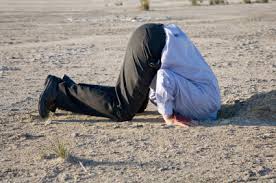The House Energy and Commerce Committee had the opportunity earlier this week to pass an amendment making it clear that the House accepts the scientific consensus that climate change is real. But it seems that once again dirty energy industry money was enough to convince the Republicans on the committee that science doesn’t matter.
Twenty-four House Republicans voted against the amendment. Introduced by Democratic Representative Jan Schakowsky, the amendment stated that the House of Representatives accepts that climate change is happening and that it is the result of rising greenhouse gas emissions. The failed amendment was tacked onto the Electricity Security and Affordability Act which will prohibit the U.S. Environmental Protection Agency from enacting emissions standards on electricity plants until carbon capture technology is more “commercially viable,” which is industry slang for “cheap.”
ThinkProgress has the details on the committee’s decision to deny reality:
Twenty-four E&C members — all Republicans — voted against the amendment. Among them was E&C Chair Rep. Fred Upton (R-MI), who has said before that he doesn’t think climate change is caused by human activity, and Joe Barton (R-TX), who also questions humans’ role in climate change. In total, the Republicans who voted to deny climate change have accepted about $9.3 million in career contributions from the oil, gas and coal industries, according to analysis by the CAP Action War Room.
ThinkProgress points out that this is the second time that House Republicans voted down an amendment that forced the House to accept the science of climate change. The first was a failed amendment in 2011.
This vote comes on the heels of a series of freak winter storms that have left countless areas in the traditionally warmer Southeast covered in snow and ice. It also happens just a month and a half after the end of the fourth warmest year on record.
As I pointed out earlier this month, every member of the U.S. House of Representatives is up for re-election this year, and it is going to be a very tough battle for incumbents, as the House currently has an approval rating of less than 13%.
If incumbents hope to hold onto their jobs, they will need the campaign dollars of the dirty energy industry, and this failed amendment – along with the EPA-destroying bill it was attached to – is just one of many actions that will be taken this year to show loyalty to the industry.
Subscribe to our newsletter
Stay up to date with DeSmog news and alerts







